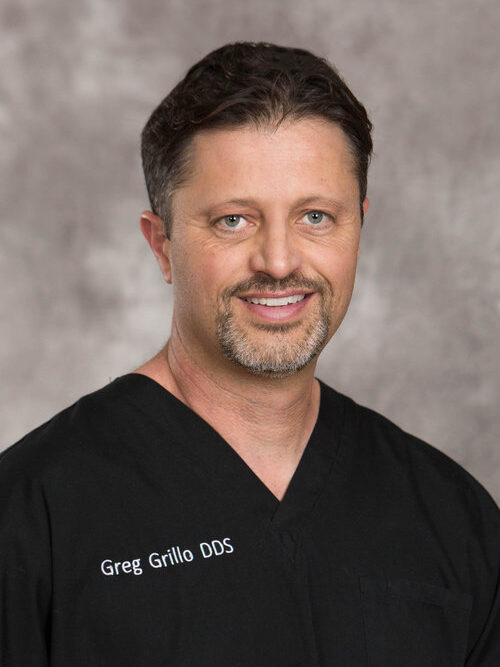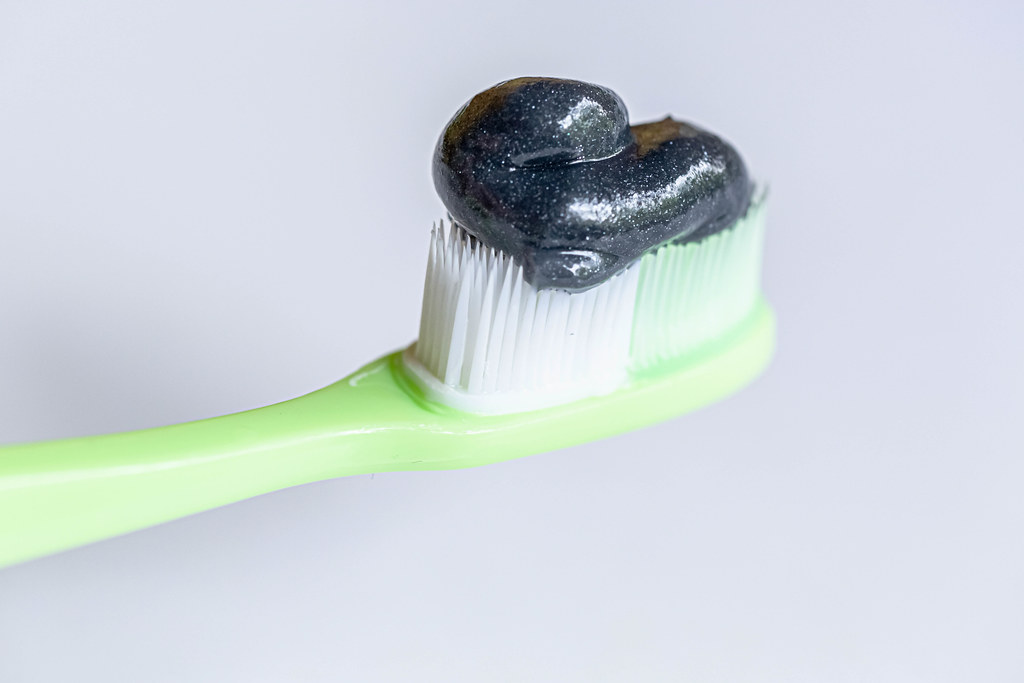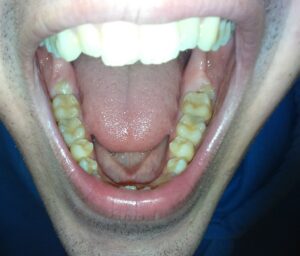I’m here today to talk a little bit about charcoal toothpaste because this is something that dentists get asked about fairly frequently. Obviously, a lot of people want to have a nicer smile. They want their teeth to look brighter and whiter. Teeth do have this tendency to absorb color over time. It comes from compounds that are in foods like coffee, tea, chocolate, wine, and grape juice. Anything like that. Slowly those little color compounds attach to the teeth, and they actually also embed into the enamel. So, we have a discoloration that may not only be on the surface but also soaking into the teeth, in a sense. You can imagine this happening many times over the years as it starts to accumulate.
What is the best thing to whiten teeth?
Naturally, if you look for solutions to brighten your smile, you’ll find charcoal toothpaste. There’s quite a bit of it on the market. But as a dentist, I have to caution you against using charcoal toothpaste, especially as there are other options that are proven and known to work really well. (Read about some teeth whitening myths to get the lowdown on what works and what doesn’t).
How does charcoal toothpaste work?
Activated charcoal is a charcoal that has undergone high-pressure processing with oxygen. There are very fine particles that are ground and then added to toothpaste. Now, there are some uses for charcoal toothpaste, but it may not really be for your teeth. When activated charcoal particles are added to toothpaste and you use it on the teeth, you are basically using it to abrade or scrub away stains.
Is charcoal toothpaste better for whitening?
Over the first month, you could notice a whitening effect, although a study comparing different types of toothpastes in 2019 showed that whitening toothpastes, other formulas (non-charcoal), actually were more effective than the charcoal toothpaste even with that initial whitening. So, you will see some whitening in many cases, but it’s because you’re abrading away that surface stains that we talked about.
Is charcoal toothpaste good for your teeth?
Charcoal toothpaste is not good for your teeth. Here’s the problem. When you use charcoal toothpaste to whiten your teeth, you’re also abrading away enamel. And you won’t notice that at first. But enamel slowly is affected by that scrubbing action with these fine abrasive particles.
By the way, enamel does not grow back. Once you wear that away, it is gone and that leaves you more susceptible to other problems like sensitive teeth as the years go by.
What are the cons of charcoal toothpaste?
If you’re using charcoal toothpaste, you’re abrading the teeth with something, but you’re probably also abrading the gums. The gums are very thin, very delicate. Sometimes people will just wear their gums away by scrubbing with a normal toothpaste or scrubbing too hard with their toothbrush. But if you add something that is a little more abrasive, like charcoal toothpaste, you may actually start to abrade the gum tissue even more. Then what happens is that you expose the underlying tooth which is a little different than the enamel that’s above the gum. It’s even softer. And so now you’re wearing that away. This could turn into a very abrasive issue that could get you into a lot of trouble.
Is it OK to use charcoal toothpaste every day?
It’s not okay to use charcoal toothpaste every day. Another set of studies has shown that what actually happens over time is that your teeth turn darker because you wear away that enamel. Then the teeth start to absorb that dark charcoal into them and they start to turn gray. So, if you’re using charcoal toothpaste for an extended period of time, you may actually get yourself into some serious trouble.
Which toothpaste is best for whitening?
It’s important to look at the science and to see what actually works and what may be detrimental over time.
So, what does work? I suggest that you stay with peroxide-based products from reputable brands and sources that have been stored properly (haven’t gotten too hot, for example). Teeth whitening products do need to be kept cool so they don’t break down. These peroxide-based products typically are very safe if they’re used according to the directions and especially under professional guidance. Now, they won’t whiten crowns or bridges or fillings, but in many cases, they will remove the majority of the discoloration.
How long does it take for hydrogen peroxide to whiten teeth?
It takes a little bit of time, but if peroxide-based products are used according to directions, they are very effective. And guess what, they’re not abrasive. So, you’re not necessarily scrubbing the teeth with them. You’re letting the product sit against the teeth. And here’s another thing. Not only does it remove that surface stain, but remember, I talked about the embedding of stains deeper into the enamel with those little color compounds? Peroxide has the ability to make a reaction and grab onto those color compounds and pull them right out of the teeth. That is very effective at whitening teeth just beyond scrubbing off surface stains.
Takeaway
I would suggest that you use peroxide-based teeth whitening products rather than charcoal toothpaste. But it’s also a good idea to make sure that the teeth discoloration is not from something else that’s going on. In some cases, people have had cavities causing discoloration, and they think that putting whitening gel on the cavity will remove the “stain.” But it’s always good to start any teeth whitening process with a current dental checkup. Make sure you’ve seen your dentist and they’ve checked for any issues that might be going on that could affect the whitening process as well or that may make your teeth unresponsive to the whitening process.
Here at Express Dentist, we have a trusted network of dentists that we can refer you to. We can help you get in to see somebody who can check everything out and make sure that you’re in good oral health and good to go with whitening. They could discuss this even more with you and what might be more effective to give your smile a boost. Feel free to reach out and keep smiling.
About the author

Dr. Greg Grillo
Dr. Greg Grillo DDS studied at the University of Washington where he received a bachelors degree with Honors and later attended dental school on the same campus. Following school Dr. Greg served in the United States Navy as a dental officer. During this time he received advanced training in specialty areas of dentistry while also treating families of members of the military.
As well as sharing valuable information on dentistry and oral health, Dr. Greg remains a practicing dentist to this day. He works with families in the Okanogan Valley where he lives with his wife and three children.
- Dr. Greg Grillo#molongui-disabled-link
- Dr. Greg Grillo#molongui-disabled-link
- Dr. Greg Grillo#molongui-disabled-link
- Dr. Greg Grillo#molongui-disabled-link





